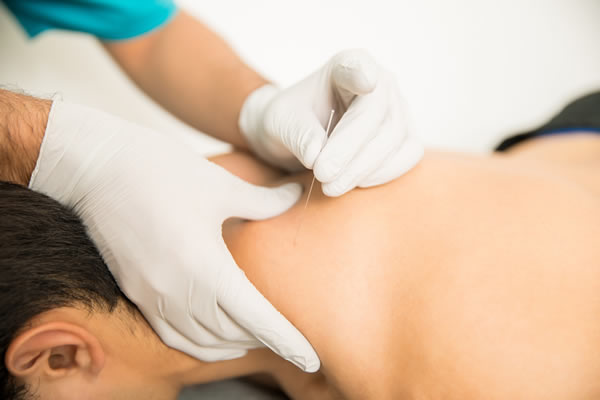Dry Needling

What is Dry Needling?
Dry Needling is a treatment technique whereby a sterile, single-use, fine filament needle (acupuncture needle) is inserted into the muscle to assist with decreasing pain and improving function through the release of myofascial trigger points which are sometimes known as knots in the muscle.
What are the benefits?
Dry Needling can:
• stimulate blood flow to the area
• stimulate endorphins
• stimulate healing process
• promote relaxation
What conditions can it treat?
Dry needling may provide relief for some muscular pain and stiffness. In addition, easing the trigger points may improve flexibility and increase range of motion. That's why this method is often used to treat sports injuries, muscle pain, and even fibromyalgia pain.
Wherever massage may be helpful, dry needling is considered an alternative.
What can I expect to feel?
Superficial Acupuncture-like needling is very comfortable.
There may be a small prick sensation as the needle enters the skin, but often patients do not realise the needle has been inserted.
As the needle targets the trigger point in the muscle, it may cause a twitch in it, a pattern of pain or symptom which the patient has had concerns with. This confirms the needle is in the ideal spot. Symptoms tend to ease or resolve during the needling process.
Is there an added cost?
There is no extra cost. Dry needling may be used, with your permission, as part of your normal physiotherapy consultation. It may be requested by the patient or it may be suggested by the physiotherapist.
Who should avoid Dry Needling?
Patients should avoid Dry Needling treatment if they:
- have a needle phobia.
- are unwilling or fearful of the treatment after explanation
- are unable to give consent due to communication, cognitive or age-related factors.
- are in a medical emergency or acute medical condition.
- have lymphodema in the area to be treated as this may increase the risk of infection/cellulitis and the difficulty of fighting the infection if one should occur.
Patients should gain a medical clearance from their doctor prior to dry needling if they:
- have an abnormal bleeding tendency
- have compromised immune system
- have a vascular disease
- have diabetes
- are pregnant
- are a child
- are frail
- have epilepsy
- have a psychological status
- have relevant allergies
- are on certain medications

 03 5996 1688
03 5996 1688